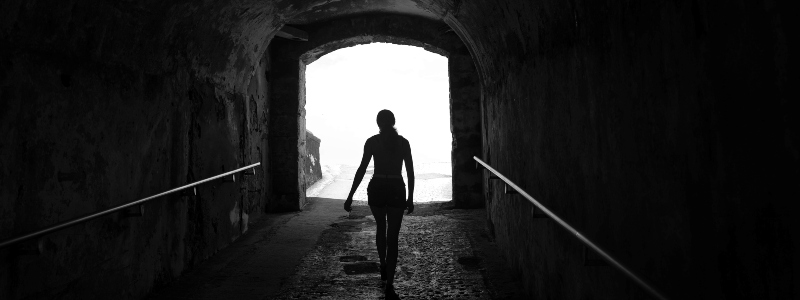There is a lot of wisdom in sayings that have been part of our language and culture for as long as we can remember. For example, being ‘on the back foot’, meaning to be at a disadvantage or on the defensive, is a perfect expression of how our relationship to our body influences how we relate to ourselves and the world around us. Likewise, to have a ‘gut feeling’ about someone or something, is really very profound as our emotional system (our unconscious) resides in the body and expresses itself somatically through, amongst other parts of our body, the gut.
However, one expression I come across quite often that is not only incorrect but also harmful is ‘what doesn’t kill us, makes us stronger’. It is an expression which is frequently accompanied by a disavowal of any felt emotion in relation to the event being described and suggests that somehow we grow stronger and more resilient through trauma. The latter is particularly true of childhood developmental trauma where an individual has been regularly misattuned to, neglected or abused. In the case of developmental trauma, what doesn’t kill us makes us weaker and less adaptable to the realities of life.
Developmental trauma, also known as complex trauma, arises ‘when caregivers are emotionally absent, inconsistent, frustrating, violent, intrusive, or neglectful, children are liable to become intolerably distressed and unlikely to develop a sense that the external environment is able to provide relief’ – Dr. Bessel van de Kolk (2014). Developmental trauma directly impacts on cognitive, neurological, psychological and immunological development of infants and maps onto our attachment patterns in later life. In other words, we grow our brains and minds from our early experiences with our primary caregivers which lays down a belief system about ourselves, about those around us and about the world in general.
A little about attachment
OK, so developmental trauma correlates to attachment patterns. What are attachment patterns and why do they matter? It is generally accepted that there are four types of attachment: secure; avoidant; anxious-ambivalent; insecure-disorganised.
If a parent has been available to their infant and able to attune to their child’s needs, the child learns that it is safe to turn to that parent in order to seek soothing and reassurance, and then safe to turn away and carry on exploring the world when they feel calm again. This child is securely attached and will likely carry this attachment style into his or her adult relationships.
The other three attachment styles are all classed as insecure and arise from childhood developmental trauma. Avoidant infants learn that they need to be self-reliant despite their anxiety; Anxious-ambivalent children seek out their caregiver but fail to be soothed through a lack of attunement – they pick up their mother’s anxiety; children with disorganised attachment feel enormous conflict in their main attachment relationship wanting to approach for security and feeling frightened of doing so.
Attachment patterns matter for a whole host of reasons, however, on the most fundamental level, attachment patterns dictate whether we are able to use relationships (with ourselves and others) to regulate our emotions, arousal and anxiety. An inability to regulate our arousal state means it is more likely that we will suffer with higher levels of anxiety and be predisposed to emotional, mental and physical illness.
Thus, in the context of trauma, attachment and our relationship to self and other, what doesn’t kill us progressively makes us weaker.
The role of psychotherapy is to help individuals process trauma and through the therapeutic relationship start to challenge attachment styles and patterns. It is possible to shift over time from an insecure- to secure attachment pattern.
Mark Vahrmeyer is a UKCP Registered Psychotherapist working in private practice and palliative care.

Leave a Reply